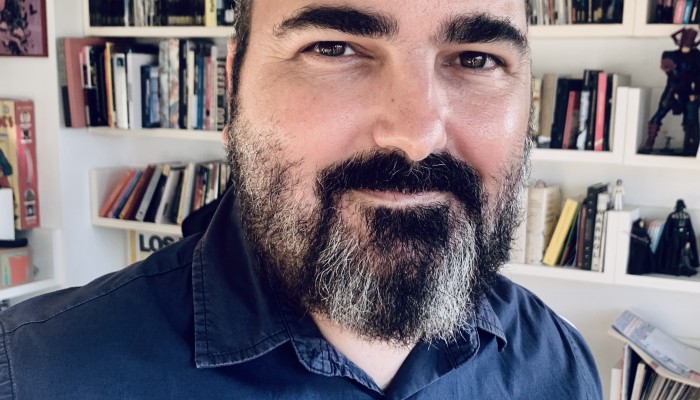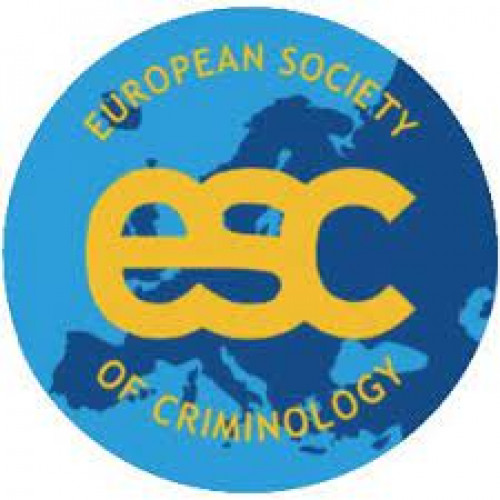Candidate for At-Large Board Membership: Fernando Miro

My name is Fernando Miró-Llinares, I am 46 years old and I was born in Ibi, a little town in the province of Alicante, in whose capital I have been living for 17 years. I am currently a Professor of Criminal Law and Criminology at the Miguel Hernández University in Elche, and I am the head of the CRÍMINA Research Centre for the Study and Prevention of Crime at the same university, a young but already leading research centre thanks to the tireless work of a magnificent human group with great research talent of which I am especially proud. Although I started my career as a Criminal Law teacher at the University of Alicante, I have been more than 20 years at the Miguel Hernández University, where I have been Dean of the Faculty of Social and Legal Sciences for 8 years.
At my University I have been teaching for 20 years in very diverse undergraduate and graduate courses, I have also promoted the creation of several university degrees, among them the Degree in Public and Private Security of the Miguel Hernández University, and I have directed several degree and graduate courses, being at present the Director of the Master in Analysis and Prevention of Crime and of the Phd Program in Criminology, from where I have directed 6 doctoral theses. I am also co-founder of PlusEthics, a spin-off of the Miguel Hernández University dedicated to provide legal and ethical design to R&D projects on Public Policies and Security especially related to technology and its social impact.
I consider myself essentially a university scholar, passionate about teaching and research, and involved in management when necessary. At the research level, I have been and am a lover of two worlds: on the one hand, that of the philosophy of justice and criminal law; on the other, that of the social scientific study of crime and the response to it and its social impact. I do not deny any of these disciplines and I humbly try to make contributions to both that are enriched by a vision that is far from labels and truly transdisciplinary. My scientific production has been constant, with more than 100 publications both national and international, among which my works on Criminal Law, Criminal Policy, Environmental Criminology, Crime Trends, and in particular in recent times Technology and Criminal Justice and Cybercrime should be highlighted. My main works have been published in Spanish, of course, and have had an impact both in Spain and Latin America. In recent years I have also published in English, particularly in relation to the analysis of crime in cyberspace and the application of the theories and applications of environmental criminology to crime perpetrated on the Internet.
I am also a member of seven international networks of great reputation, among which are besides the European Society of Criminology, the American Society of Criminology, the European Society of Criminology, the International Society of Criminology, the COMJIB, or the Spanish Society of Criminological Investigation to which I am presenting myself as president in the coming weeks. I am also a member of the International Criminal Law Association and I have recently been designated General Rapporteur for the topic of Artificial Intelligence and Criminal Justice for the next four years.
As for research projects, during my career I have participated in more than 30 national and international research projects and contracts, being the lead researcher in more than 20 of them. Among them are the European projects “Pericles: Policy recommendation and improved communication tools for law enforcement and security agencies preventing violent radicalisation; “Arisa II. Assessing the Risk of Isolation of Suspects and Accused: The impact of the media”; “SAFETY4RAILS. Data-based analysis for SAFETY and security protection for detection, prevention, mitigation and response in trans-modal metro and Railway networks”; “SUCCES. Strengthening Criminology Teaching”; “IcARUS. Innovative Approach to Urban Security”; and “SECU4ALL. Training local authorities to provide citizens with a safe urban environment by reducing the terrorist attacks related risks in public spaces”. Also, national projects funded by the Spanish Government such as “NEXO. Criminology, empirical evidence and criminal policy. On the incorporation of scientific data for decision making in relation to the criminalisation of conducts”; “CiberHache. Incitement to violence and hate speech on the Internet. Real scope of the phenomenon, typologies, environmental factors and limits of legal intervention”; or “RISKMENT. Environmental risk assessment of accidents with alcohol: geographical variables, procedures and tools for improving the effectiveness of controls”. I would also like to highlight my work for the European Union in providing technical assistance for the formulation of a criminal investigation program in the SICA countries, as well as support for the Central American Security Strategy. Likewise, my work for the COMJIB, by participating in the elaboration of a pre-legislative work on the creation of a proposal of substantive criminal law on cybercrime in Latin America, or my participation in the expert commission for the elaboration of the reform of the Honduran Criminal Code.
Given the proposal made for my nomination, and with the essential spirit of learning much more about criminology in Europe and to contribute my experience to what is required, I have decided to accept and apply to become a member of the ESC Board. If I am elected, I will work hard to promote the essential work of the ESC and to continue to advance towards their goals.
